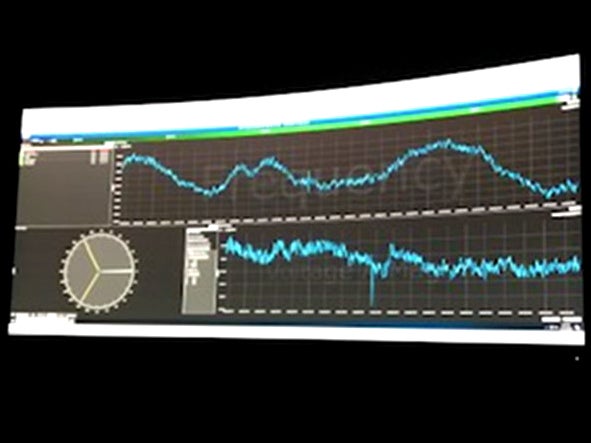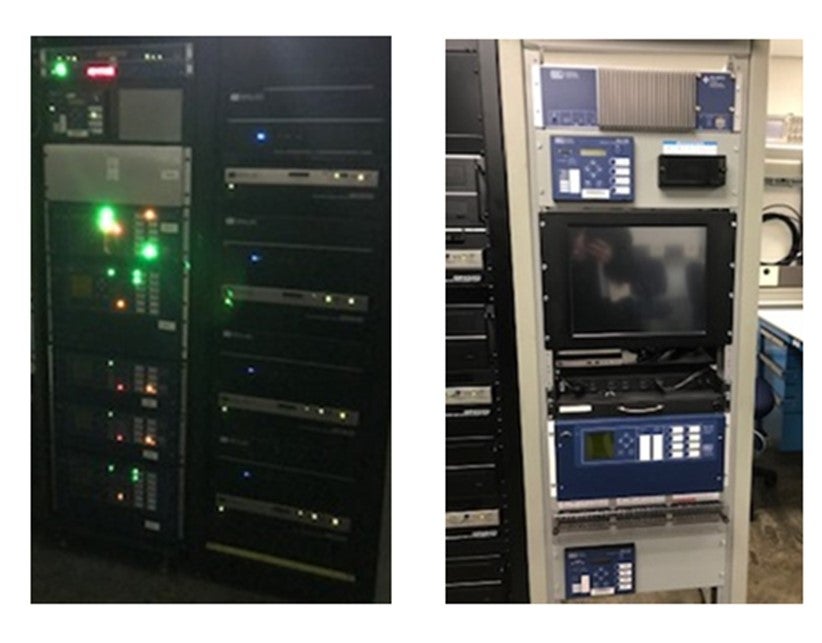
The ALSET Lab at RPI receives corporate award of $100K from Virginia based Dominion Energy in support of research on Flexible Alternating Current Transmission systems to develop models used in simulation that will help in overhauling the aging power grid with viable solutions to inconsistent voltage control for efficient power transmission in the system. With the ever increasing need for reliable power connectivity, the grid’s system integration must also be able to support and adjust for uncertainties from renewable energy sources or sporadic system failures. Existing models are difficult to understand and their replicated results do not match what is actually occurring.
RPI associate professor Luigi Vanfretti in the Electrical, Computer & Systems Engineering (ECSE) Department and his team in the ALSET Lab have been working on a prototype modeling system to provide a cross-reference basis for models using the Modelica language that will interface directly in real-time with the power grid system measurements. Presently, the Modelica language and Functional Mock-up Interface (FMI) standards have not been in widespread use in the field models of power electronics.
“The innovations of Dominion Energy’s project have been a really good fit with ALSETLab’s efforts in power grid analysis and the results are promising,” says Vanfretti of his team’s progress in building viable models.

The ALSETLab (or Analysis Laboratory for Synchrophasor and Electrical Energy Technology) specializes in modeling and simulation of cyber-physical systems in general with focus on the power with regards to systems synchronized phasor measurement technologies and PMU applications such as real-time, multi-domain or co-simulations in system identification methods to power system modeling, monitoring and control.
“The outcome is to have a portable model that will run both simulations and compare them to actual grid performance, providing predictive analytics in a software rich environment,” elaborates Vanfretti.
“The ECSE department has a long history of industry engagement — such interactions are crucial to the relevance and impact of our research and education programs. The ALSET Lab/Dominion Energy collaboration is a great example of industry needs motivating our research, in this case, modeling, simulation, and control of power grids.,” says RPI professor and recently appointed ECSE department head, John Wen.
Prototyping, software mapping and model testing will continue over the next calendar year as the research teams moves closer to finalizing a standardized model that will work in both the simulated and live environments.
Story author: Leah Scott
About Dominion Energy
Headquartered in Richmond, VA, Dominion Energy [NYSE: D] is one of the nation’s largest producers and transporters of energy, with a portfolio of approximately 26,000 megawatts of electric generation; 14,800 miles of natural gas transmission pipeline; 51,800 miles of natural gas distribution pipeline; 6,600 miles of electric transmission lines; and 57,900 miles of electric distribution lines. We operate one of the largest natural gas storage systems in the U.S. with 1 trillion cubic feet of capacity and serve more than 6 million utility and retail energy customers.
About Rensselaer Polytechnic Institute (RPI)
Rensselaer Polytechnic Institute, founded in 1824, is America’s first technological research university. For nearly 200 years, Rensselaer has been defining the scientific and technological advances of our world. Rensselaer faculty and alumni represent 85 members of the National Academy of Engineering, 17 members of the National Academy of Sciences, 25 members of the American Academy of Arts and Sciences, 8 members of the National Academy of Medicine, 8 members of the National Academy of Inventors, and 5 members of the National Inventors Hall of Fame, as well as 6 National Medal of Technology winners, 5 National Medal of Science winners, and a Nobel Prize winner in Physics. With 7,000 students and nearly 100,000 living alumni, Rensselaer is addressing the global challenges facing the 21st century—to change lives, to advance society, and to change the world. To learn more, visit the RPI website.
About Electrical, Computer and Systems Engineering (ECSE)
ECSE offers Bachelor, Masters, and Doctoral degrees in Electrical Engineering and Computer and Systems Engineering. ECSE faculty conducts cutting edge research across multiple disciplines and physical scales, including semiconductor design and processing, smart sensors and devices, 5G communication, and cybertphysical systems such as smart grid and collaborative robots. ECSE students are trained in engineering fundamentals and application-specific domains with emphasis on hands-on education, design experience, and teamwork. ECSE faculty include 14 IEEE Fellows, 7 Fellows in other learned societies, and 7 NSF CAREER Award winners. For further information, visit the ECSE website.
About ALSET Lab
ALSETLab at the Department of Electrical, Computer and Systems Engineering Department of Rensselaer is a time-sensitive and real-time simulation-based hardware & software development and testing platform for cyber-physical power systems, among others. the ALSET Lab website.
Leah Scott, MBA
Marketing and Outreach Manager
School of Engineering
Rensselaer Polytechnic Institute
Office: (518) 276-4010
Email: scottl2@rpi.edu
Website: ecse.rpi.edu


